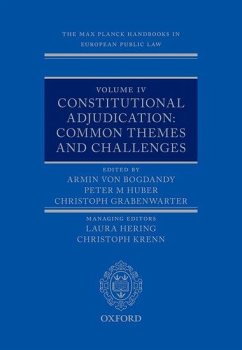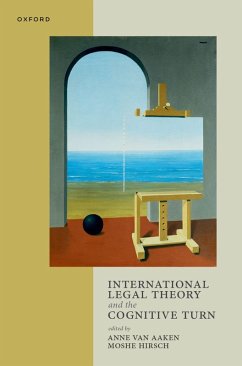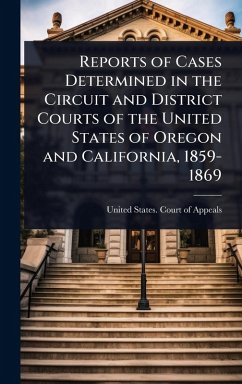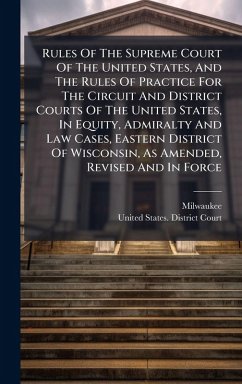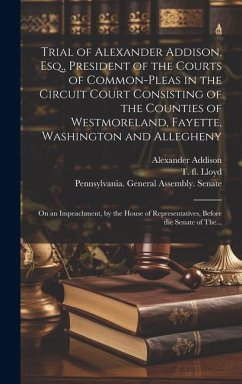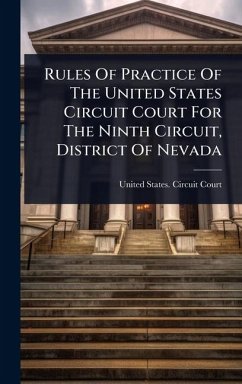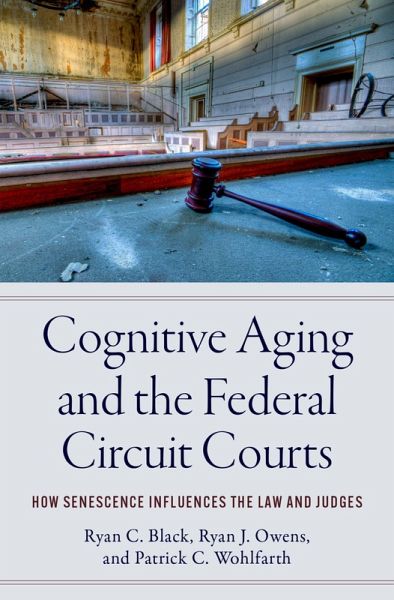
Cognitive Aging and the Federal Circuit Courts
How Senescence Influences the Law and Judges
Versandkostenfrei!
Versandfertig in über 4 Wochen
121,99 €
inkl. MwSt.
Weitere Ausgaben:

PAYBACK Punkte
61 °P sammeln!
In the United States, federal judges occupy weighty positions. They interpret the Constitution, define people's rights and liberties, and apply laws and regulations to myriad cases. They also are older than ever. In 2023, the median age of a federal judge reached 70 for the first time. Nearly one-third of federal judges exceeded the age of 75. And ten percent were 85 years or older. The federal judiciary has become a graying judiciary. Recent advances in neuroscience show that cognitive aging leads to processing speed delays, a decline in executive functioning skills like reasoning and memory,...
In the United States, federal judges occupy weighty positions. They interpret the Constitution, define people's rights and liberties, and apply laws and regulations to myriad cases. They also are older than ever. In 2023, the median age of a federal judge reached 70 for the first time. Nearly one-third of federal judges exceeded the age of 75. And ten percent were 85 years or older. The federal judiciary has become a graying judiciary. Recent advances in neuroscience show that cognitive aging leads to processing speed delays, a decline in executive functioning skills like reasoning and memory, and a greater reliance on cognitive shortcuts. Judges are not immune from these effects. Simply put, cognitive aging influences all people. Judges are people. And so cognitive aging must influence them. In Cognitive Aging and the Federal Circuit Courts: How Senescence Influences the Law and Judges, a distinguished team of authors investigates how cognitive aging influences federal circuit court judges. The first-of-their-kind results show that as judges age, they require more time to craft their opinions; they rely more on cognitive shortcuts; their opinions become less complex; they increasingly rely on others to help them write opinions; and their legal influence on panels wanes just as their susceptibility to persuasion increases. These results are sure to transform broad debates about institutional reform.




